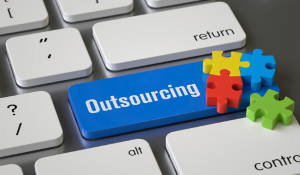In the fast-paced world of business, vacations are essential for rejuvenation and maintaining...
How to Create a Sustainable HR Strategy Outside of a PEO
In today’s dynamic business environment, developing a sustainable HR strategy is crucial for long-term success. While many businesses turn to Professional Employer Organizations (PEOs) for HR solutions, it is entirely possible to build an effective and sustainable HR strategy independently through an Administrative Services Organization (ASO). This approach allows for greater control over HR functions, fostering a tailored approach that aligns closely with your company’s specific needs and culture. In this blog, we will explore the key components of creating a sustainable HR strategy outside of a PEO and the benefits it can offer.
Understanding Your Business Needs
The foundation of a sustainable HR strategy begins with a thorough understanding of your business needs. This involves analyzing your current HR processes, identifying gaps, and setting clear objectives. Start by conducting an internal audit to evaluate your existing HR practices, including recruitment, onboarding, training, performance management, and employee engagement.
How to Do It:
- Assess Workforce Demographics: Understand the composition of your workforce, including skills, experience, and diversity.
- Identify Key HR Metrics: Track metrics such as employee turnover, retention rates, and time-to-hire to pinpoint areas for improvement.
- Set Clear Goals: Define short-term and long-term HR goals aligned with your business objectives, such as improving employee retention or enhancing training programs.
Building a Robust Recruitment and Retention Strategy
A sustainable HR strategy must prioritize effective recruitment and retention. Attracting top talent and retaining valuable employees are critical for organizational stability and growth.
How to Do It:
- Develop an Employer Brand: Create a compelling employer brand that showcases your company’s values, culture, and opportunities for growth.
- Implement Structured Onboarding Programs: Ensure new hires are integrated smoothly and effectively with comprehensive onboarding processes.
- Foster a Positive Work Environment: Promote a culture of respect, inclusivity, and continuous feedback to enhance employee satisfaction and retention.
Investing in Employee Development
Continuous learning and development are essential for keeping your workforce skilled and motivated. A sustainable HR strategy should include robust training and development programs tailored to your employees' needs.
How to Do It:
- Offer Professional Development Opportunities: Provide access to workshops, courses, and certifications relevant to your industry.
- Create Individual Development Plans: Work with employees to develop personalized growth plans that align with their career aspirations and your business goals.
- Encourage a Learning Culture: Promote a culture that values continuous learning and knowledge sharing among employees.
Implementing Effective Performance Management
Performance management is a key component of a sustainable HR strategy. It involves setting clear performance expectations, providing regular feedback, and recognizing achievements.
How to Do It:
- Set Clear Performance Metrics: Define measurable performance criteria aligned with business objectives.
- Conduct Regular Performance Reviews: Implement a structured review process to provide timely feedback and identify areas for improvement.
- Recognize and Reward Achievements: Develop a recognition program to reward outstanding performance and motivate employees.
Ensuring Compliance and Ethical Standards
Adhering to legal and ethical standards is crucial for maintaining a sustainable HR strategy. Ensure your HR practices comply with all relevant labor laws and regulations.
How to Do It:
- Stay Updated on Legal Requirements: Regularly review and update HR policies to reflect current laws and regulations.
- Implement Ethical Guidelines: Establish a code of conduct and ethical guidelines for all employees to follow.
- Conduct Regular Training: Provide training on compliance and ethical behavior to all employees.
Leveraging Technology for HR Efficiency
Technology plays a vital role in modern HR management. Utilizing HR software and tools can streamline processes, improve efficiency, and enhance the employee experience.
How to Do It:
- Adopt HR Management Systems: Use HR software to automate payroll, benefits administration, and performance tracking tasks.
- Utilize Data Analytics: Leverage data analytics to gain insights into HR metrics and make informed decisions.
- Enhance Communication: Implement tools that facilitate better communication and collaboration among employees.
Conclusion
Creating a sustainable HR strategy outside of a PEO involves understanding your business needs, building robust recruitment and retention strategies, investing in employee development, implementing effective performance management, ensuring compliance, and leveraging technology. By taking control of your HR functions through an ASO, you can develop a tailored approach that aligns with your company’s unique culture and objectives. This not only enhances your ability to attract and retain top talent but also drives long-term business success. Embrace these strategies to build a resilient and sustainable HR framework that supports your organization’s growth and adaptability in an ever-changing business landscape.
For more information on how to create your HR strategy outside of a PEO give us a call at 909.466.7876 today!
Also, learn about The Long-Term Benefits of Independent HR Management and The Impact of PEOs on Your Business Autonomy by reading these short articles.




